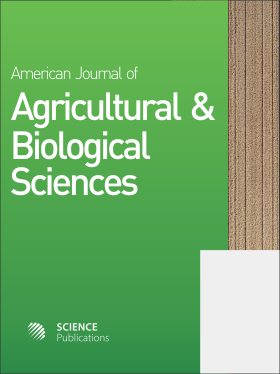Zinc Phosphide Induced DNA Damage in the Blood Cells of Gallus sp. using Comet DNA Assay
- 1 Department of Zoology, Faculty of Biological Science, Genetics and Molecular Biology, University of Dhaka, Bangladesh
Abstract
Problem statement: The comet DNA assay is considered a suitable and rapid test for DNA-damaging potential in environmental and biomonitoring studies. Approach: During the study comets were analyzed as a measure of DNA damage to quantify the damage in the blood cells of fowls (Gallus sp.) after exposure to Zinc Phosphide (Zn3P2). Here the potential for DNA strand breaks by Zn3P2 were considered as biomarker of genotoxicity. Both "in vivo" and "in vitro" experiments were performed to evaluate the DNA damage. Results: Data also revealed that the amount of DNA damage (calculated as damage score) for different doses, had a significant difference with each other. And the genetic toxicity appeared to be dose specific and dose dependent. DNA damage was also found to be positively correlated with period of exposure for a given dose. Conclusion/Recommendations: Thus this study suggested that Zinc Phosphide is toxic to blood nuclear DNA.
DOI: https://doi.org/10.3844/ajabssp.2012.82.87

- 4,865 Views
- 4,334 Downloads
- 9 Citations
Download
Keywords
- Comet DNA assay
- Zinc Phosphide (Zn3P2)
- biomonitoring studies DNA damage and Gallus gallus
- Gallus sp
- genotoxicity
